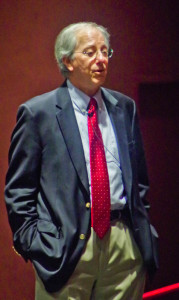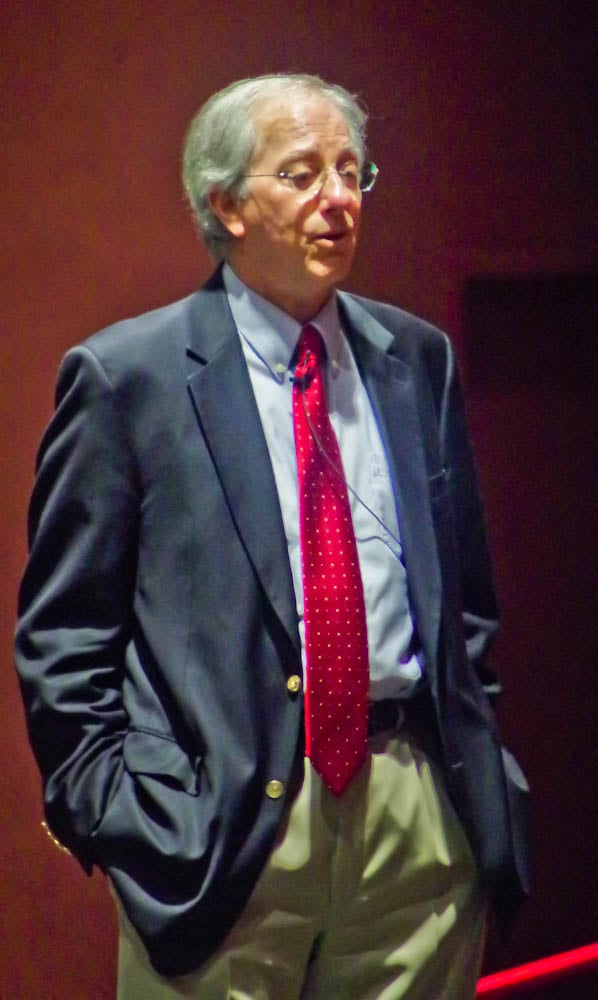“If we want there to be a peace agreement we are going to have to change the dynamic; we are going to have to show that something is different this time,” said Ambassador Dennis Ross in regard to Israel-Palestine relations.

Ross, who served in various national security and diplomatic roles during the Reagan, H.W. Bush, Clinton and Obama administrations, spoke to an audience of roughly 270 in Dinkelspiel Auditorium on Wednesday night, as part of an event series hosted by Hillel at Stanford.
Co-president of the Stanford Israel Alliance, Alon Elhanan ‘14 introduced Ross and Larry Diamond ‘73 M.A. ‘78 Ph.D. ‘80, director of the Center on Democracy, Development and the Rule of Law (CDDRL) at Stanford, who moderated the question and answer session on the topics of foreign policy discussed.
While his talk was entitled “A Wide Angle Perspective on a Democratic Israel,” Ross interspersed light humor and personal anecdotes into a range of foreign policy topics and international issues.
“We have not seen a period like this sort of upheaval,” Ross said as he traced back through history in demonstrating that between Egypt, Syria, Iran and the Arab-Israeli issue, the world has never seen more conflict at one time.
Ross spoke specifically about the controversial relationship between the United States and Saudi Arabia, stating that neither the United States nor Saudi Arabia want a failed Egyptian state, yet the Saudis are preoccupied with eliminating Iran and the Muslim Brotherhood while American influence is ebbing in Egypt.
Ross also spent time discussing the possibility of a deal with Iran regarding the rollback of its nuclear advancements.
“This is not the time to be lifting sanctions,” Ross said, further elaborating on the threat to Israel that Iran currently poses.
The second half of his lecture was dedicated to the Arab-Israeli conflict. Ross argued that because there is so much going on in the Middle East, the lack of specific focus on the Arab-Israeli conflict opens up a space for political dialogue.
Moreover, he brought up the necessity for specific compromises from both sides, referencing his own 16-point plan to get the Middle Eastern peace process back on track.
While he did display optimism regarding progress in the future, he also acknowledged the deep mistrust between sides that currently hinders the negotiation process today.
“If you’re looking at the core issues…what they are trying to negotiate—borders, security, refugees, Jerusalem—each side stakes out the maximal position and has no reason to begin to solve or even to think about creative ways to deal with it as a long as they disbelieve,” Ross said. “The disbelief makes it very difficult to take advantage of the context that might create a possibility.”
Contact Alexa Liautaud at alexl ‘at’ stanford.edu.
